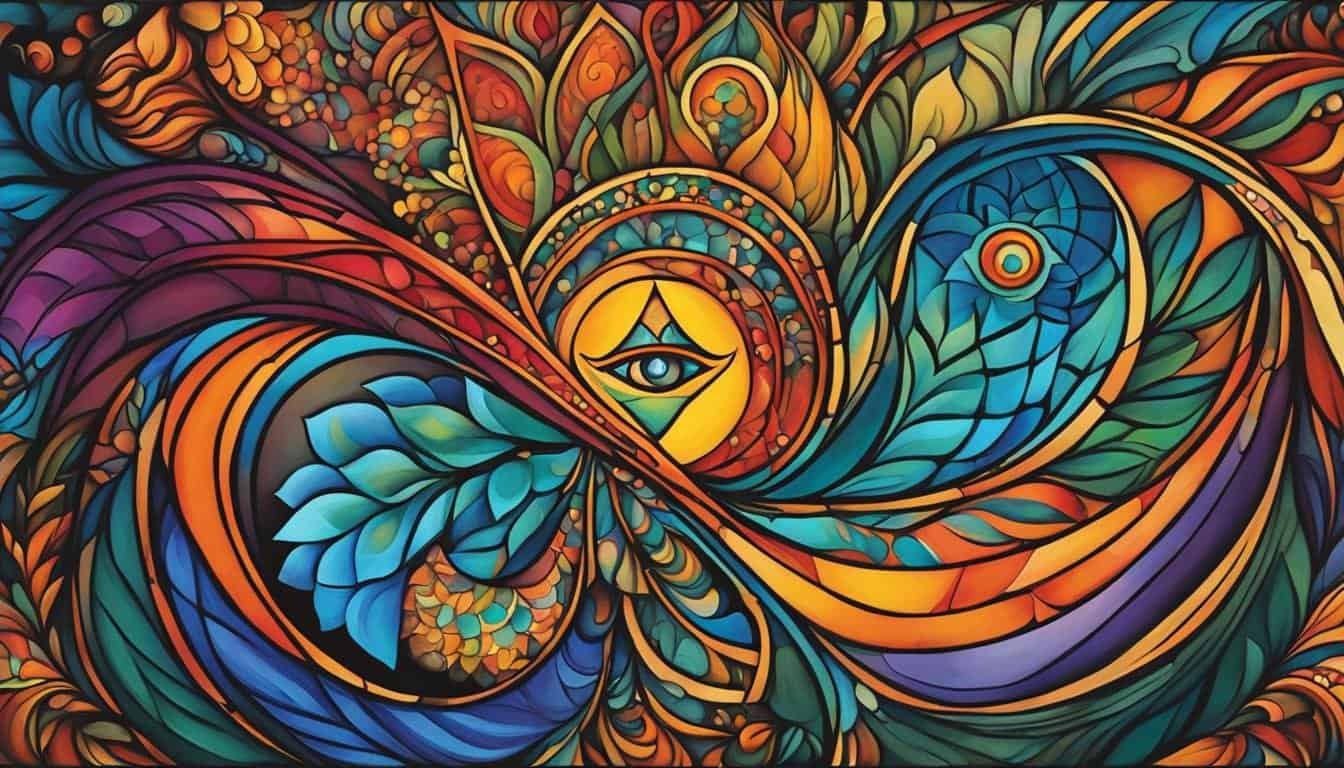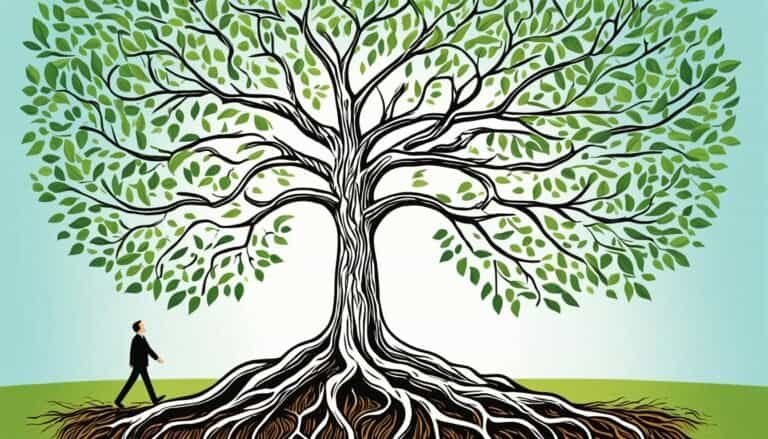Embrace Wellness with Lessons from Deepak Chopra
|
Getting your Trinity Audio player ready...
|
“Healing is the return of the memory of wholeness.” – Deepak Chopra
Life can often feel fragmented and disconnected, causing stress and anxiety. In these uncertain times, it’s more important than ever to find ways to nurture our well-being and cultivate a sense of wholeness. Deepak Chopra, a renowned spiritual teacher, offers profound insights and transformative guidance that can help us navigate the challenges of modern life and rediscover our inner balance.
Deepak Chopra’s teachings encompass a wide range of topics, from spirituality and self-improvement to mindfulness practices and holistic healing advice. Drawing from ancient wisdom and modern science, he offers practical tools and profound wisdom that can empower us to live a more meaningful and fulfilling life.
In this article, we will explore some of the key lessons from Deepak Chopra’s philosophy and insights, and discover how they can inspire us to embrace wellness in all aspects of our lives.
Key Takeaways:
- Deepak Chopra’s teachings offer transformative guidance for holistic well-being.
- Embracing spirituality and self-improvement can help us navigate the challenges of modern life.
- Mindfulness practices and holistic healing advice can empower us to live a more meaningful life.
- Deepak Chopra’s philosophy draws from ancient wisdom and modern science.
- His teachings can inspire us to embrace wellness in all aspects of our lives.
The Mystery: Trusting Divine Intelligence
Deepak Chopra invites us to explore the enigmatic nature of life, embracing the unknown with a profound sense of trust in divine intelligence. While we may often find ourselves grappling with situations that are beyond our control, we have the power to surrender to the unfolding journey and discover inner peace amidst the mysterious aspects of existence. By cultivating a spiritual practice that embraces the unknown, we can navigate life’s uncertainties with grace, finding solace and serenity along the way.
“Life is full of mysteries, and it is through trusting divine intelligence that we find the answers we seek.”
Trusting divine intelligence is acknowledging that there is a greater wisdom at play in the universe. It is an act of surrender and acceptance, allowing us to release the need for absolute control and lean into the flow of life. By relinquishing our desire to know all the outcomes and instead choosing to trust in divine guidance, we open ourselves up to infinite possibilities and invite a sense of peace into our lives.
Embracing the unknown requires us to let go of our attachment to specific outcomes and relinquish our need for certainty. It is an invitation to step into the realm of faith, where we trust that everything is unfolding as it should, even if it doesn’t align with our expectations. In this surrender, we find freedom from the burdens of worry and anxiety, finding solace in the knowledge that we are held and supported by a higher power.
As we embrace the mystery and trust in divine intelligence, we embark on a journey of self-discovery and spiritual growth. We recognize that we are part of something much larger than ourselves, intricately connected to the vast web of existence. Our spiritual practice becomes a means of deepening this connection, allowing us to tap into the wisdom and guidance that flows through us and all around us.
“Surrendering to the mystery allows us to find peace within ourselves and navigate life’s challenges with resilience and grace.”
Through our spiritual practice, we develop the ability to ground ourselves amidst uncertainty and find peace within the unknown. We learn to trust that every twist and turn in our journey is part of a greater unfolding, guiding us towards our highest potential. This trust in divine intelligence brings a sense of ease and tranquility, allowing us to embrace the mystery of life with an open heart.
The Path to Finding Peace:
- Embrace the unknown with curiosity and wonder.
- Release the need for control and surrender to the unfolding of life.
- Cultivate a spiritual practice that deepens your connection to divine intelligence.
- Trust in the wisdom and guidance that flows through you and all around you.
- Find peace and serenity by letting go of attachment to specific outcomes.
Fall Season and Reflection
The fall season is a time of transition and reflection. As the leaves change color and the air becomes crisper, we are reminded of the beauty of impermanence and the ever-changing cycles of life. In Ayurveda, the ancient Indian system of medicine, fall is associated with the Vata dosha, which is characterized by qualities of movement, change, and creativity.
During the fall season, nature encourages us to slow down, turn inward, and reflect on the past year. It provides us with an opportunity to honor what we have accomplished and learned, as well as contemplate what the future may hold. By taking the time to reflect, we can gain valuable insights about ourselves and our lives, paving the way for personal growth and transformation.
Inspiration often strikes during this season of change. The vibrant colors of the falling leaves, the gentle rustling of the wind, and the crispness in the air can awaken our senses and ignite our creativity. Fall invites us to embrace our own unique ideas and explore new possibilities.
Ayurveda teaches us that balancing the Vata dosha during the fall season is important for our overall well-being. This can be done through nourishing foods, grounding practices, and self-care rituals that promote stability and warmth. By aligning with the energy of the season, we can harness its transformative power and cultivate a sense of inner harmony.
The Benefits of Fall Reflection
Reflecting on our experiences and achievements allows us to gain a deeper understanding of ourselves. It provides an opportunity to celebrate our successes, acknowledge our challenges, and identify areas where we can grow and improve. Fall reflection is a practice of self-awareness that supports personal development and helps us make informed choices for the future.
“In the midst of movement and chaos, keep stillness inside of you.” – Deepak Chopra
By taking the time to pause and reflect, we can also cultivate gratitude for the blessings in our lives. As we look back on the past year, we can appreciate the lessons learned, the relationships nurtured, and the moments of joy that have brought us fulfillment. Gratitude connects us to the present moment and shifts our focus from what is lacking to what is abundant.
Embracing the Wisdom of Fall
- Take regular walks in nature and immerse yourself in the beauty of the changing seasons.
- Keep a journal and write down your reflections, intentions, and gratitudes.
- Schedule regular self-care practices, such as warm baths, meditation, or yoga.
- Embark on creative projects that inspire you and allow your creativity to flow.
- Seek quiet moments of solitude to reflect and recharge.
The fall season offers us a unique opportunity for self-discovery, growth, and inspiration. As we honor the changing seasons, both within and around us, we can embrace the wisdom of fall and cultivate a deeper connection to ourselves and the world.
Astrological Influence and the Unfolding Path
Recent astrological happenings have sparked a renewed focus on transformation and the exploration of our shadow selves. One notable event is Pluto turning direct, bringing forth its powerful energy of rebirth and profound change. This celestial occurrence serves as a potent reminder of the transformative potential that lies within each of us.
Astrology teaches us that our experiences and motivations shape our values, leading to different perspectives and understandings of the world. It is crucial to approach these variations with compassion and empathy, recognizing that we are all on our own unique journeys of self-discovery and growth. By embracing diversity and understanding that different paths can lead to collective wisdom, we can foster a sense of unity and connection.
“The unfolding path of the Universe is guided by its own innate intelligence. When we surrender to this natural intelligence, we open ourselves to personal and collective growth.” – Deepak Chopra
Like the planets constantly in motion, our lives are in a state of constant flux and evolution. Surrendering to the unfolding path of the Universe allows us to tap into the inherent intelligence that guides us towards our highest potential. It is through this surrender that we find the courage to face our shadows, embrace transformation, and embark on a journey of self-realization.
Transformation and Rebirth
Transformation is a universal process that extends to all aspects of life, from our personal growth to societal shifts. Astrological happenings provide us with windows of opportunity for deep inner transformation, inviting us to release old patterns and embrace positive change.
Just as Pluto represents the cycle of death and rebirth, we too must undergo our own metaphorical deaths and resurrections to experience true growth. By willingly facing our fears, acknowledging our shadows, and embracing the unknown, we create space for profound evolution.
“Transformation is not an easy journey, but it is a necessary one. Through the rebirth process, we shed limitations and move towards our highest potential.” – Deepak Chopra
The Dance of the Planets
The influence of planets in astrology is a complex dance, with each celestial body carrying its unique energy and symbolism. As planets align and interact with one another, they create rhythms and vibrations that have a profound impact on our lives.
Pluto, with its transformative energy, urges us to dive deep into our subconscious and confront our deepest fears, allowing us to let go of what no longer serves us. It is through this process that we can experience true liberation and authentic self-expression.
The Power of Astrological Awareness
By developing an awareness of astrological happenings, we can gain valuable insights into the cosmic energies at play. This awareness allows us to navigate life’s challenges and opportunities with a deeper sense of purpose and alignment.
Embracing astrology as a tool for self-discovery and personal growth empowers us to embrace our unique paths and make conscious choices that align with our higher selves. Through this alignment, we can tap into the transformative energy present in the Universe and embark on a journey of self-realization.
In the next section, we will explore the role of desire and the play of life in our pursuit of happiness and self-fulfillment.
The Role of Desire and the Play of Life
Desire plays a significant role in shaping our experiences and driving our actions. It is often seen as the root cause of suffering, as unfulfilled desires can bring about frustration and discontentment. However, it is unrealistic to try to live without desire altogether. Deepak Chopra introduces the concept of leela, which translates to the “divine play” of life. In this perspective, we are all souls on a journey, learning and growing through our desires.
The journey of life is not meant to be a rigid and serious affair but rather a playful exploration. Leela encourages us to embrace the excitement and joy that comes with fulfilling our desires. It reminds us that we are co-creators of our reality, and our desires serve as catalysts for personal and spiritual growth. Through leela, we can find meaning in our desires and understand that they hold valuable lessons for our evolution.
However, surrendering our desires is also an integral part of the divine play. When we become too attached to specific outcomes or cling to our desires with unwavering determination, suffering arises. Surrendering is not an act of giving up or resignation; instead, it is an act of trust and letting go. By surrendering our desires to the higher intelligence of life, we open ourselves up to a greater flow of possibilities and allow life to unfold in its own divine timing.
“When you let go of the desire and instead focus on your spiritual journey and evolution, you create space for deeper fulfillment and a sense of peace that transcends the temporary happiness that desire brings.” – Deepak Chopra
Surrendering our desires is a transformative practice that liberates us from the constraints of attachment and leads us to a state of freedom and peace. It allows us to embrace the present moment fully and cultivate gratitude for what is, rather than constantly yearning for what isn’t. By surrendering our desires, we align ourselves with the natural flow of life, relinquishing the need for control and opening ourselves to the unexpected gifts and opportunities that come our way.
Furthermore, surrendering our desires brings us closer to a sense of community-mindedness. As we let go of our individual desires and surrender to the divine play of life, we recognize the interconnectedness of all beings. We understand that our desires are not separate from the desires of others and that true fulfillment comes from harmonizing our individual aspirations with the collective well-being.
The Benefits of Surrendering Desires
Surrendering our desires can be a life-changing practice with several benefits:
- Freedom from attachment and craving
- Greater peace of mind and contentment
- Heightened sense of gratitude and appreciation
- Enhanced ability to embrace the present moment
- Deepened spiritual connection and trust in divine guidance
- Expanded awareness of our interdependence and community
- Harmonization of personal aspirations with collective well-being
By surrendering our desires and trusting in the lessons of life, we can experience a profound shift in our perspective and find true fulfillment. It is through this surrender that we unlock the transformative power of the divine play and allow ourselves to participate fully in the beautiful unfolding of life.
| Benefits of Surrendering Desires | |
|---|---|
| Freedom from attachment and craving | Greater peace of mind and contentment |
| Heightened sense of gratitude and appreciation | Enhanced ability to embrace the present moment |
| Deepened spiritual connection and trust in divine guidance | Expanded awareness of our interdependence and community |
| Harmonization of personal aspirations with collective well-being |
Understanding Fear and Grounding
Fear can be a powerful and paralyzing emotion that holds us back from living our fullest life. It often stems from a Vata imbalance, one of the three doshas in Ayurveda associated with air and space elements. Grounding ourselves is key to finding stability and overcoming fear.
One of the most effective ways to ground ourselves is through mindfulness. Mindfulness allows us to bring our attention to the present moment, focusing on what is happening right now rather than worrying about the past or future. By practicing mindfulness, we can quiet the mind, calm the nervous system, and reduce fear and anxiety.
In addition to mindfulness, deep nasal breathing can also help in grounding. Nasal breathing involves inhaling and exhaling through the nose rather than the mouth. This type of breathing activates the parasympathetic nervous system, which promotes relaxation and reduces stress. By taking slow, deep breaths through the nose, we can bring ourselves back to the present moment and ground our energy.
“When we ground ourselves, we connect with the stability of the earth and find a sense of rootedness that helps us face our fears with more stability and clarity.” – Deepak Chopra
It’s important to question whether our fears are truly our own or if they have been inherited or influenced by external factors. By examining our fears with curiosity and awareness, we can better understand their origins and challenge their validity. This self-reflection allows us to navigate challenges with a more grounded perspective and make decisions based on our own truth.
To further illustrate the process of understanding fear and grounding, consider the following table:
| Fear Triggers | Grounding Techniques |
|---|---|
| Public speaking | Mindful breathing, positive self-talk |
| Fear of failure | Journaling, affirmations, visualization |
| Height or flying | Exposure therapy, deep breathing exercises |
By identifying our personal fear triggers and employing appropriate grounding techniques, we can gradually overcome our fears and live a more fulfilling life. It’s important to remember that fear is a natural part of being human, but it doesn’t have to control us. With mindfulness, nasal breathing, and self-reflection, we can find the strength and courage to face our fears head-on and embrace a life filled with growth and transformation.
The Power of Compassion and Different Perspectives
Compassion is a powerful force that transcends differences and connects us on a deeper level. It allows us to empathize with others, understanding and accepting their unique experiences and perspectives. Deepak Chopra teaches that cultivating compassion is essential for our own soul growth and self-realization.
Each person’s journey is distinct, shaped by their values, beliefs, and timelines. Recognizing this, we can approach others with deep compassion, knowing that they too are navigating their own path of growth. What may appear as unfavorable outcomes to us could be invaluable lessons for their personal development.
Trusting in the unfolding path of the Universe helps us embrace compassion and acceptance. The concept of karma reminds us that every action we take and experience we have contributes to our soul’s evolution. By understanding karma and its profound impact, we can cultivate compassion not only for others but also for ourselves.
“Compassion is not a relationship between the healer and the wounded. It is a relationship between equals. Only when we know our own darkness well can we be present with the darkness of others. Compassion becomes real when we recognize our shared humanity.”
– Pema Chödrön
Compassion allows us to transcend judgment and embrace the interconnectedness of all beings. By adopting different perspectives, we expand our understanding and learn from the diverse experiences of others. It is through the richness of these varied perspectives that we gain wisdom and insight.
The Ripple Effect of Compassion
Compassion not only benefits individuals on their journey but also has a ripple effect in our communities and the world. When we approach life with compassion, we foster unity, harmony, and understanding. The energy of compassion can create a positive shift, spreading kindness and empathy to those around us.
By embodying compassion and embracing different perspectives, we contribute to the collective soul growth and self-realization of humanity. Through compassion, we bridge gaps, dissolve barriers, and create a more compassionate and interconnected world where understanding and empathy are the foundation of our interactions.
Continue to the next section to explore the empowering lessons that arise from embracing the unknown and finding genuine happiness.
Lessons from the Unknown and Finding Happiness
Deepak Chopra teaches that true happiness can be found by embracing the unknown and shedding imprisoning illusions. By approaching life with curiosity and a playful mindset, we can unlock our potential and find joy in the simple act of living.
In our journey towards happiness, we often cling to what is familiar and comfortable. However, by stepping outside of our comfort zones and embracing the unknown, we open ourselves up to new experiences and opportunities for growth. Embracing curiosity allows us to see the world with fresh eyes and discover hidden wonders that we may have otherwise missed.
“The unknown is not something to be feared, but rather, something to be embraced. It holds the keys to our personal growth and true happiness.” – Deepak Chopra
Shedding illusions is another crucial step on the path to finding happiness. We often cling to false beliefs and perceptions that hold us back from living authentically. By letting go of these illusions and embracing the truth of who we are, we free ourselves to live a more fulfilling and meaningful life.
A playful approach to life can also contribute to our overall happiness. When we approach challenges and setbacks with a sense of playfulness, we are able to find creative solutions and maintain a positive outlook. By embracing a light-hearted attitude, we can navigate life’s ups and downs with resilience and grace.
True happiness is not found in external achievements or possessions, but rather in the journey of self-discovery and personal growth. It stems from aligning our actions with our values and finding fulfillment in the present moment. By embracing the unknown, shedding illusions, and adopting a playful approach, we can embark on a path towards true happiness that is sustainable and deeply fulfilling.
| Embracing Curiosity | Shedding Illusions | Playful Approach | True Happiness | |
|---|---|---|---|---|
| Benefits | Expands our horizons | Liberates us from self-imposed limitations | Enhances problem-solving skills | Creates lasting fulfillment |
| Practice | Explore new interests and ideas | Question and challenge our beliefs | Approach challenges with a sense of playfulness | Align actions with values |
| Impact | Stimulates personal growth and learning | Fosters authenticity and self-acceptance | Enhances resilience and positive outlook | Creates sustainable and lasting happiness |
The Practice of Cold Plunging
Cold plunging is a transformative practice that goes beyond physical discomfort. It involves immersing oneself in cold water, often as part of a mindfulness ritual or wellness routine. While initially challenging, the experience of cold plunging can have profound effects on both the mind and body.
Mindfulness is an essential component of cold plunging. As you immerse yourself in cold water, you are forced to be fully present in the moment, letting go of any distractions or worries. This heightened state of mindfulness can lead to a sense of clarity and focus, allowing you to cultivate a deeper connection with yourself and the world around you.
Enduring physical discomfort during a cold plunge can also be an opportunity for self-discovery. By pushing your body to its limits and confronting physical sensations that may be uncomfortable or unfamiliar, you can gain a greater understanding of your own resilience and inner strength. With each plunge, you challenge yourself to overcome adversity, building confidence and a sense of empowerment.
“Cold plunging teaches us the power of resilience and adaptability. It’s a reminder that we are capable of facing discomfort head-on and emerging stronger on the other side.”
In addition to its mental and emotional benefits, cold plunging has been shown to have physiological advantages. The cold water stimulates the parasympathetic system, triggering a relaxation response that can reduce stress, improve sleep, and enhance overall well-being. It can also improve blood circulation, boost immune function, and provide relief from muscle soreness or inflammation.
To incorporate cold plunging into your wellness routine, start by gradually exposing yourself to colder temperatures. Begin with shorter durations and warmer water, then gradually decrease the temperature and increase the time spent in the cold water. Remember to listen to your body and never push yourself beyond your limits.
Whether you plunge into a cold lake, an ice bath, or a cold shower, the practice of cold plunging can be a profound tool for self-discovery, resilience, and personal growth. Embrace the discomfort, be present in the moment, and let the transformative power of cold water guide you on your journey of well-being.
Lessons from Deepak Chopra at SXSW
Deepak Chopra, a renowned spiritual leader, empowered audiences with his teachings on genuine happiness, embracing the unknown, and unlocking true confidence and self-empowerment at the South by Southwest (SXSW) event.
During his insightful session, Chopra emphasized the importance of curiosity, playfulness, and a mindful approach to life. He encouraged individuals to explore the depths of their being, find their authentic happiness, and tap into their unlimited potential.
Chopra’s teachings revolved around nurturing a sense of inner joy and fulfillment. He urged attendees to let go of societal expectations and external validation, empowering them to cultivate confidence from within. By embracing their true selves and connecting deeply with their inner wisdom, individuals can embark on a journey of self-discovery and self-empowerment.
“True happiness lies not in external achievements or possessions, but in the alignment of our thoughts, words, and actions with our inner truth,” emphasized Chopra.
By integrating mindfulness into daily life and embracing the present moment, individuals can break free from self-doubt and fears, experiencing a renewed sense of confidence. Chopra highlighted the transformative power of self-awareness and staying grounded in the face of uncertainty.
Embracing Mindfulness
One of the key takeaways from Chopra’s session was the significance of mindfulness in cultivating a deeper sense of happiness and self-empowerment. By consciously paying attention to the present moment, individuals can release anxieties about the past or future and fully engage in their current experiences.
Chopra encouraged the practice of meditation, deep breathing, and other mindfulness techniques to foster a sense of inner peace and clarity. These practices enable individuals to tap into their intuition and make choices aligned with their authentic selves.
Confidence through Self-Acceptance
According to Chopra, true confidence comes from self-acceptance and self-love. By embracing all aspects of ourselves—the light and the shadows—we develop a compassionate view towards ourselves and others.
Chopra reminded the audience that everyone is on their own unique journey, and comparison and judgment only hinder personal growth. Genuine confidence arises when we let go of the need for external validation and learn to trust our inner guidance.
Unlocking Self-Empowerment
Deepak Chopra emphasized that self-empowerment comes from realizing our own inherent power and potential. It involves tapping into our creativity, facing challenges with resilience, and embracing the unknown with curiosity and courage.
Chopra encouraged individuals to step out of their comfort zones, take calculated risks, and trust in the process of life. By cultivating a mindset of abundance and positive affirmations, individuals can unlock their true potential and create a life filled with purpose and fulfillment.
| Key Lessons from Deepak Chopra’s SXSW Session |
|---|
| Embrace mindfulness to cultivate happiness and self-empowerment |
| Build confidence through self-acceptance and self-love |
| Unlock self-empowerment by tapping into your inherent potential |
Conclusion
Deepak Chopra’s teachings offer valuable insights and guidance for embracing holistic well-being, spirituality, and transformative growth. His wisdom encourages us to surrender to the unknown, embrace compassion, and find joy in the present moment. By incorporating these lessons into our lives, we can create a more balanced and mindful existence.
Through Deepak Chopra’s transformative guidance, we can learn to navigate the uncertainties of life with greater ease and grace. His teachings remind us that true well-being encompasses not only our physical health but also our emotional, mental, and spiritual well-being.
By embracing holistic well-being, we can nurture our mind, body, and soul, leading to a more fulfilling and purposeful life. Deepak Chopra’s insights inspire us to tap into our inner potential, awaken our spiritual consciousness, and experience growth and transformation on a profound level.








